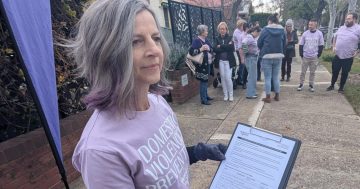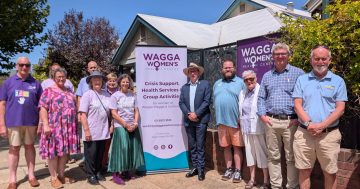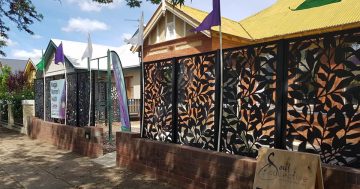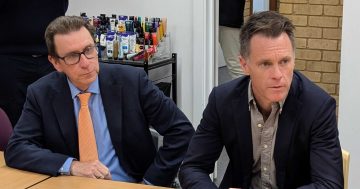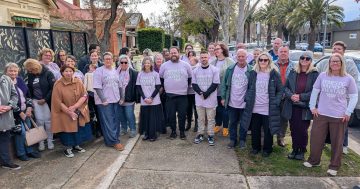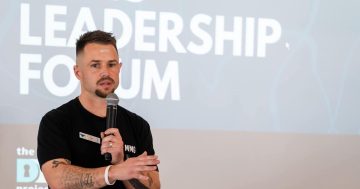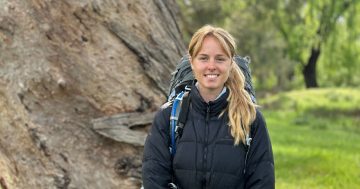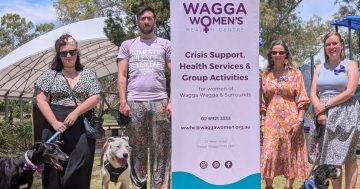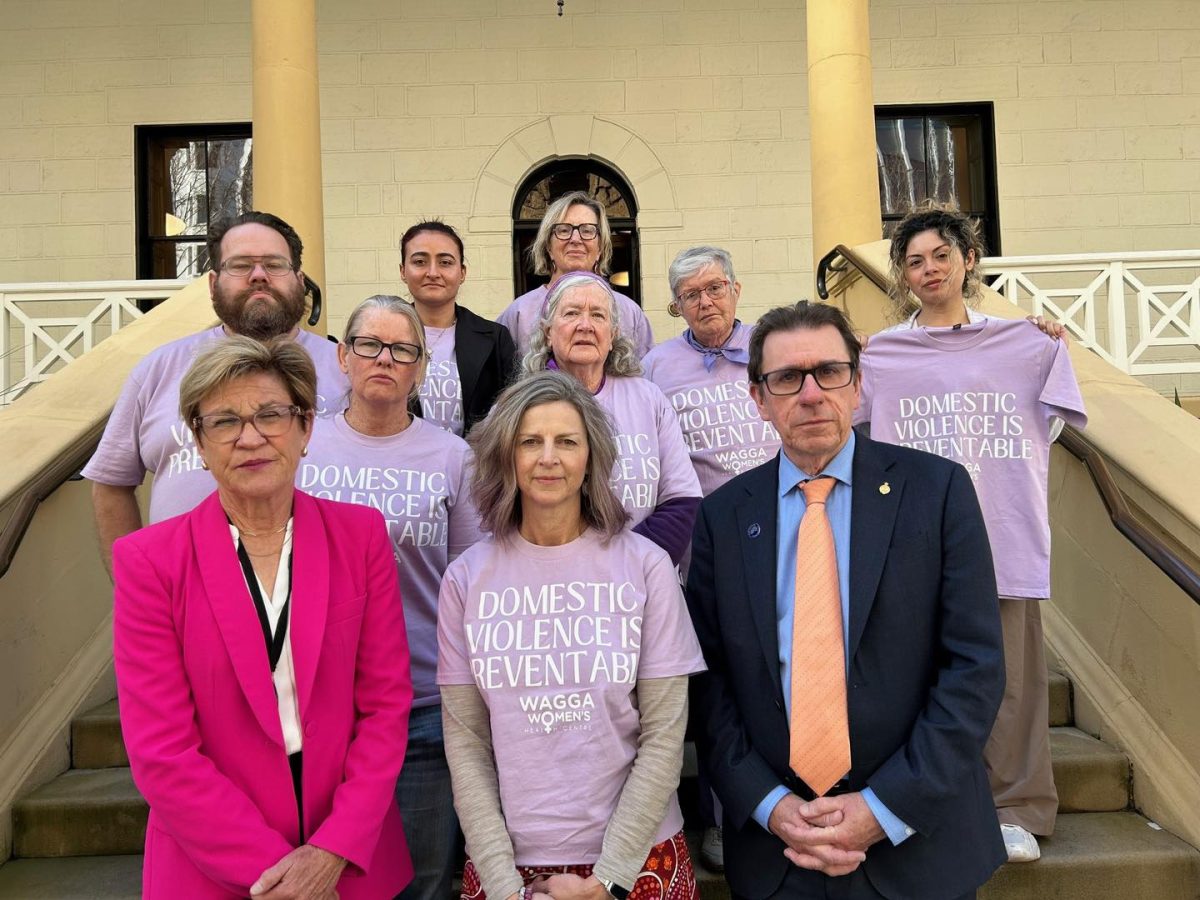
Member for Murray Helen Dalton, Wagga Women’s Health Centre president Vickie Burkinshaw and Member for Wagga Wagga Dr Joe McGirr (all front, from left) and health centre members met with Minister for Women Jodie Harrison to discuss the group’s funding cut. Photo: Supplied.
Members of the Wagga Women’s Health Centre have finally met with NSW Minister for Women Jodie Harrison, after a month of radio silence following the group’s impending loss of primary prevention funding.
From 31 August, the centre will have its $600,000 of primary prevention funding cut by the NSW Government, a move that has caused considerable confusion in the greater Riverina community.
Since the impending financial blow was announced, the WWHC has held several events and circulated a petition with 1300 signatures, and last week visited the NSW Parliament to protest against the decision.
With the support of Member for Wagga Wagga Dr Joe McGirr and Member for Murray Helen Dalton, WWHC president Vickie Burkinshaw and nine other WWHC members sat down with Minister for Women Jodie Harrison to discuss the decision.
Ms Burkinshaw said the meeting was the first time a WWHC member had come into contact with Ms Harrison or anyone from her staff since the decision was made in July.
“Dr McGirr helped us secure time with Ms Harrison and her policy adviser, and we’re really grateful to him for that, but it is a bit confusing that it took him saying something to organise a meeting. Doesn’t she serve us?” Ms Burkinshaw said.
“They [Ms Harrison’s office] did make an undertaking that they would look to see where there might be temporary funds, which is a positive, I guess.”
Ms Burkinshaw highlighted that of the 11 recipients of the primary prevention funding, 10 of the councils were based in Sydney, with the only regional one being Lismore.
“It just doesn’t make any sense to us that five of the 11 went to City of Sydney Council, and the other five were distributed across other councils in Sydney and on the coast,” she said.
“We spoke to Ms Harrison and said, imagine what it feels like to be in the regions, like the optics on the way that the funding was distributed.”
Ms Burkinshaw said that, unlike most of the recipients, the work conducted by the WWHC had been running for years and had taken a long time to get off the ground. By cutting the funding for these projects, the NSW Government had, in essence, killed them. Meanwhile, newer projects in Sydney would need years of planning and integration into the community to be effective.
“Primary prevention is a long game,” she said.
“It is about working with our primary school students, working with the men and women of our community. We have to constantly be putting into this primary prevention pool to have that long-term systemic change.
“For example, it’s taken us all these years to get into Christian schools. We’re allowed into the schools to have conversations around healthy relationships and consent because of our working relationships. No one can come in from outside and do that kind of work in a three-year period that the current funding pool is providing for.”
Ms Burkinshaw said that while the meeting had been a positive one, she would continue to advocate for the centre until it was guaranteed funding.







